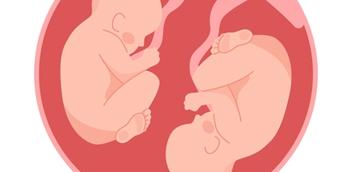
Postsurgical Levonorgestrel IUD Improves Endometriosis Symptoms
The use of a postoperative levonorgestrel-releasing intrauterine device reduces the recurrence of painful periods in women with endometriosis.
The use of a postoperative levonorgestrel-releasing intrauterine device (LNG-IUD) reduces the recurrence of painful periods in women with endometriosis, concluded an intervention review by the Cochrane Menstrual Disorders and Subfertility Group.1
Endometriosis, characterized by the presence of endometrial tissue outside the uterus, can cause pelvic pain and infertility. Although there is no curative treatment for endometriosis, it can be managed with surgery, hormonal medications, or a combination of these management strategies. Levonorgestrel is a progestogen that is among the hormonal medications used for ovarian suppression to help improve symptoms in women with endometriosis. This review aimed to assess whether LNG-IUD was an effective treatment strategy for managing endometriosis-related pain and for preventing the recurrence of endometriosis after surgery.
There were 3 randomized controlled trials that met selection criteria for this review. The included trials compared women undergoing surgery for endometriosis with uterine preservation with randomization within 3 months to either insertion of an LNG-IUD, no postoperative treatment, placebo (inert IUD). or other treatment. Studies that involved diagnostic laparoscopy alone were excluded.
In 2 trials, for which the strength of evidence was graded as moderate, women who received an LNG-IUD after surgery had a statistically significant reduction in the recurrence of painful periods compared with women who received expectant management (risk ratio [RR], 0.22). Compared with the expectant management group, a significantly greater number of women in the LNG-IUD group also reported a change in menstruation (RR, 37.80). In addition, more women in the LNG-IUD group reported treatment satisfaction, but the difference between study groups did not reach statistical significance (RR, 1.21). The number of women who did not complete the allocated treatment was similar between study groups (RR, 0.66).
In the third trial, lower pain scores were reported by women who received an LNG-IUD after surgery compared with women who were given gonadotropin-releasing hormone agonists after surgery. However, the difference between study groups did not reach statistical significance (RR, -0.16).
These findings show limited but consistent evidence that an LNG-IUD inserted postoperatively in women with endometriosis reduces the recurrence of painful periods. Although additional well-designed randomized controlled trials are needed to confirm these results, the researchers suggest that it is unlikely that these conclusions will change given that the strength of evidence of the selected trials was moderate.
Pertinent Point:
- The use of a levonorgestrel-releasing IUD has a beneficial role in reducing the recurrence of painful periods following surgery in women with endometriosis.
References:
1. Abou-Setta AM, Houston B, Al-Inany HG, Farquhar C. Levonorgestrel-releasing intrauterine device (LNG-IUD) for symptomatic endometriosis following surgery. Cochrane Database System Rev. 2013;1:CD005072.
Newsletter
Get the latest clinical updates, case studies, and expert commentary in obstetric and gynecologic care. Sign up now to stay informed.









